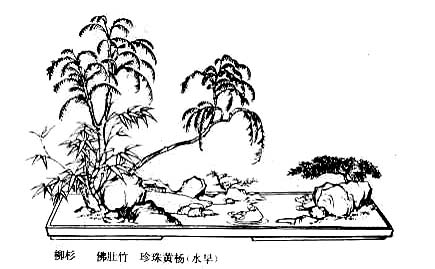論
語
Lun Yu 
 – Les Entretiens de Confucius
– Les Entretiens de Confucius
Le Maître échange propos, anecdotes, brèves paraboles et maximes avec ses disciples. Tr. Couvreur (fr), Legge (en) et Lau (en).
Lunyu XII. 19. (312)
Ki K'ang tzeu, interrogeant Confucius sur la manière de gouverner, lui dit : « Ne ferais-je pas bien de mettre à mort ceux qui contreviennent à la Voie, pour faire place à ceux qui la suivent ? » Confucius répondit : « Pour gouverner le peuple, Seigneur, avez-vous besoin de tuer ? Vous-même tendez vers le bien, et le peuple sera bon. La Vertu du prince est comme le vent ; celle du peuple est comme l'herbe. Au souffle du vent, l'herbe se courbe toujours. »
Couvreur XII.18.
Killing not to be talked of by rulers; the effect of their example.
Chî K'ang asked Confucius about government, saying, "What do you say to killing the unprincipled for the good of the principled?" Confucius replied, "Sir, in carrying on your government, why should you use killing at all? Let your evinced desires be for what is good, and the people will be good. The relation between superiors and inferiors is like that between the wind and the grass. The grass must bend, when the wind blows across it."
Legge XII.19.
Chi K'ang Tzu asked Confucius about government, saying, 'What would you think if, in order to move closer to those who possess the Way, I were to kill those who do not follow the Way?'
Confucius answered, 'In administering your government, what need is there for you to kill? Just desire the good yourself and the common people will be good. The virtue of the gentleman is like wind; the virtue of the small man is like grass. Let the wind blow over the grass and it is sure to bend.'
Lau [12:19]

Les Entretiens de Confucius – Lun Yu XII. 19. (312) – Chinois on/off – Français/English
Alias the Lunyu, the Lun Yü, the Analects, les Entretiens du maître avec ses disciples.
Le Canon des Poèmes, Les Entretiens, La Grande Étude, Le Juste Milieu, Les Trois Caractères, Le Livre des Mutations, De la Voie et la Vertu, 300 poèmes Tang, L'Art de la guerre, Trente-six stratagèmes
Bienvenue, aide, notes, introduction, table.
Index – Contact – Haut de page























